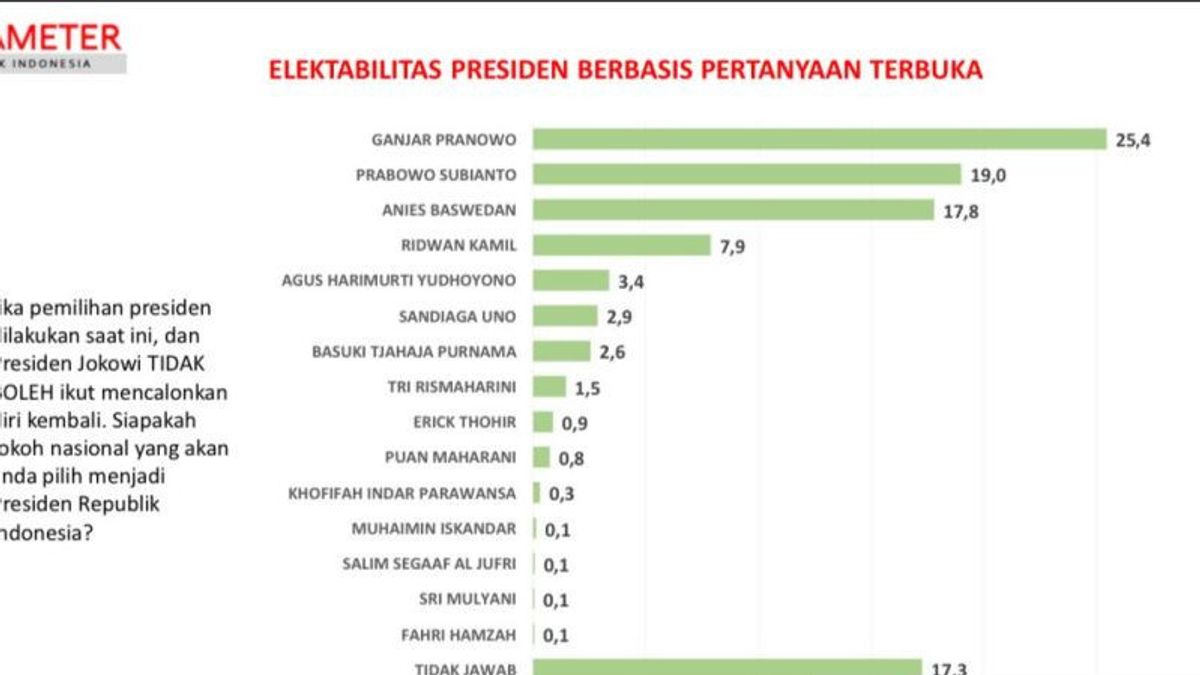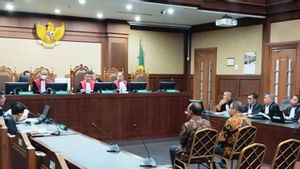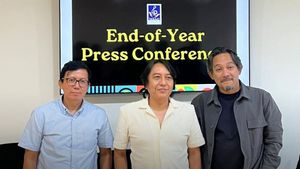JAKARTA - The results of an open-ended question-based presidential electability survey by Indonesian Political Parameters show that Central Java (Central Java) Governor Ganjar Pranowo is at the top with an achievement of 25.4 percent.
"Ganjar Pranowo currently has the highest support for the open electability scenario, electability of 14 names, 10 names, 7 names, 5 names and 3 names," said Executive Director of Indonesian Political Parameters Adi Prayitno in a written statement quoted by ANTARA, Tuesday, July 12.
In the results of the presidential electability survey based on open-ended questions, Ganjar won with a percentage of 25.4 percent, followed by Defense Minister Prabowo Subianto with 19.0 percent, and DKI Jakarta Governor Anies Baswedan with 17.8 percent.
"That is, the difference is quite far, which is more than 5 percent," said Adi Prayitno.
Meanwhile, in the simulation of three closed electability names for presidential candidates, Ganjar received 32.2 percent of support, the second was Prabowo with a percentage of 26.4 percent, and Anies in third with 22.3 percent.
Adi revealed that Ganjar was at the top of all presidential candidate electability simulations with 14 to 3 names.
"The respondents were asked, if the presidential election was held at this time, and President Jokowi was not allowed to run for re-election, which national figure would you choose to be President of the Republic of Indonesia?" said Adi.
Adi explained that based on the survey, Ganjar was elected president because of his proven performance (26.2 percent), populist (24.4 percent), and good character (14 percent). Adi said that in general, Indonesian people choose based on psychology.
"Meanwhile, sociological factors, such as religion, ethnicity, and regionalism, do not seem to have a major influence on people's choices. Ganjar Pranowo was chosen because it is considered a proven performance in Central Java," he said.
This survey was conducted on 15-29 June 2022 by telephoning method using a questionnaire conducted by trained enumerators. The survey's margin of error is approximately 2.9 percent at the 95 percent confidence level.
There is also a sample consisting of 1,200 respondents spread throughout Indonesia. Samples were taken by simple random sampling method from 10,000 target data that had been chosen at random.
The English, Chinese, Japanese, Arabic, and French versions are automatically generated by the AI. So there may still be inaccuracies in translating, please always see Indonesian as our main language. (system supported by DigitalSiber.id)













